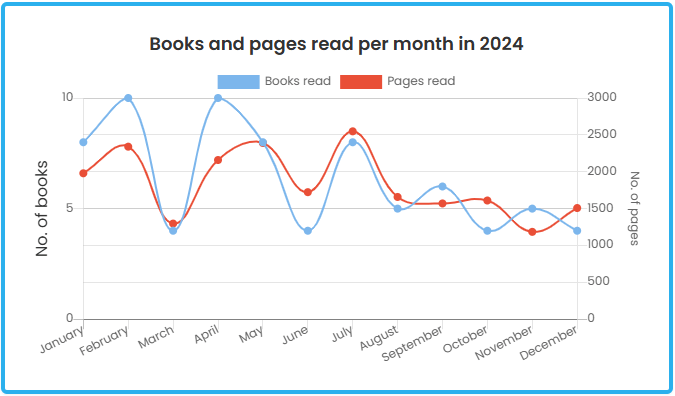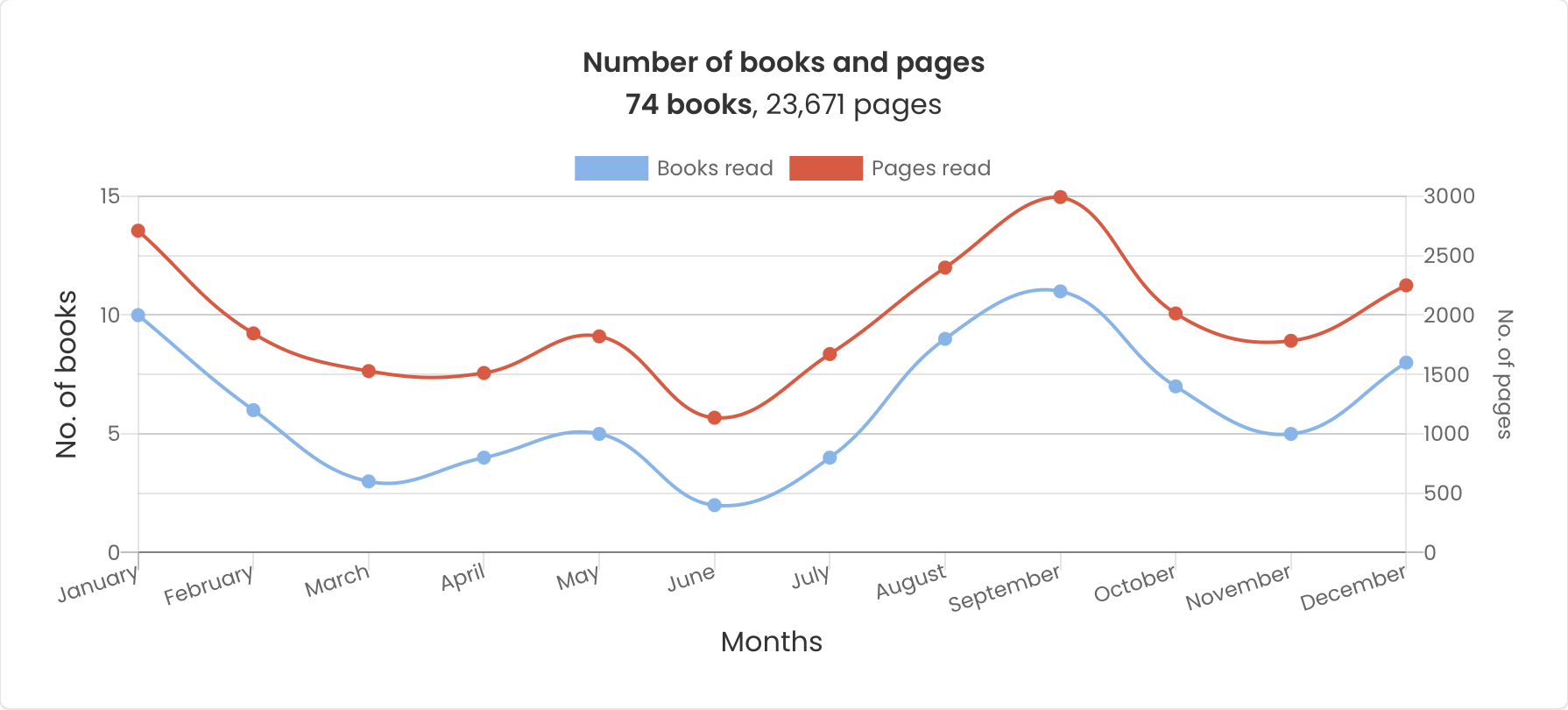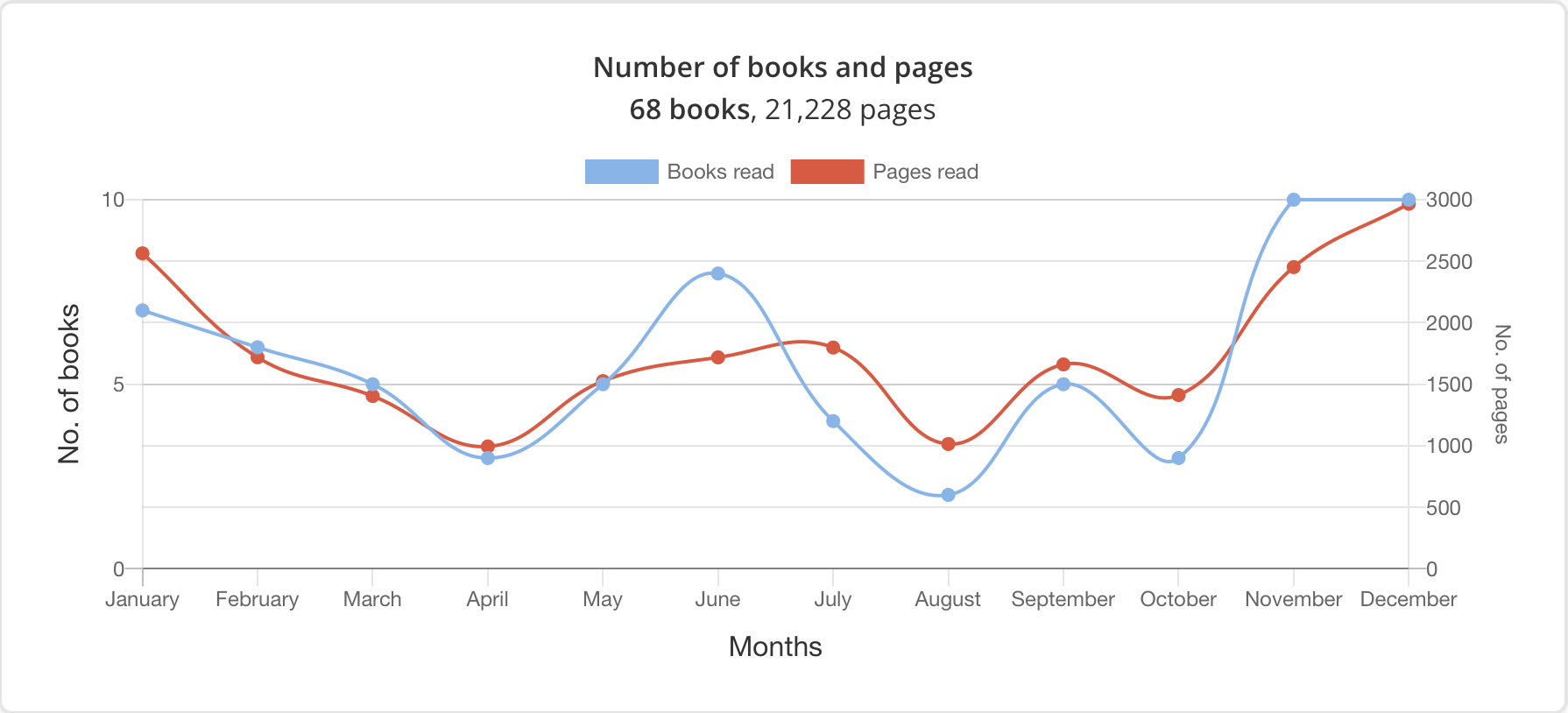Every year, I set myself a goal of reading at least 52 books over the course of the year — an average of one a week. This year I made it to 67 books. Here’s a quick (not really) overview…
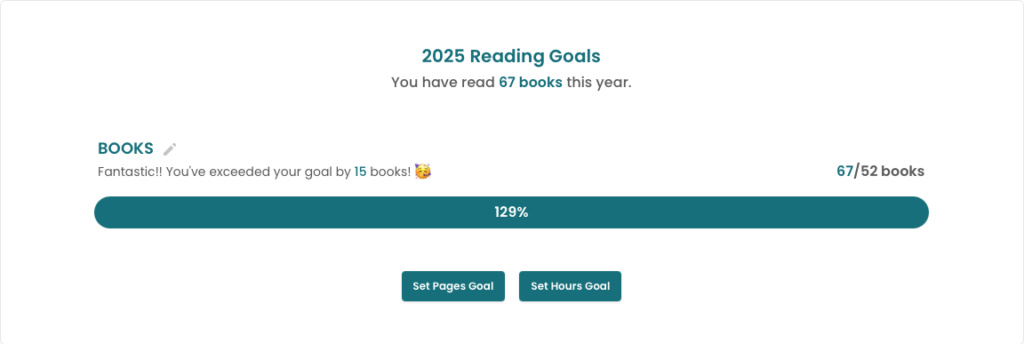
And again, the trend of the last few years holds true, with another year of primarily escapist fluff. Surprised? I’m not. Have you seen…everything? Still?
Non-fiction: Four books, counting for 6% of my reading, but I liked all four of them. On a historical bent, there was the World War II-era United States Office of Strategic Services Simple Sabotage Field Manual and Lucy Worsley’s A Very British Murder, John Tenuto and Maria Jose Tenuto’s Star Trek III: The Search for Spock: The Making of the Classic Film bridged the non-fiction world with my Star Trek fandom, and on a technical bent, Thom Hogan’s Complete Guide to the Nikon Z5II is a deep dive into the intricacies of my new camera.
Non-genre-fiction (where “genre” is shorthand — though not that short, if you include this parenthetical — for science fiction, fantasy, and horror): None, or perhaps almost none; the Nick Mamatas-edited anthology 120 Murders: Dark Fiction Inspired by the Alternative Era has a few speculative fiction entries, but as a whole probably wouldn’t be classified that way, so can count for this category.
Quality genre fiction: About the same as last year; primarily the Philip K. Dick nominees and my Hugo project, with a few others added here and there.
As usual, I read all of the books nominated for this year’s Philip K. Dick awards. However, I’m no longer posting my thoughts or review on the nominees, as I am the coordinator for the Philip K. Dick award ceremony at Norwescon. While I have no input into selecting any of the nominees or the eventual winner, I don’t want to give any appearance of impropriety. So, I’ll just read and enjoy each year’s nominees, and you all will have to make your own judgements as to your favorites.
I only added four books to my Hugo reading project, and one was somewhat accidental. Only getting through four was due to a few factors, including deciding to read the entirety of Martha Wells’s excellent The Murderbot Diaries series before attending this year’s Worldcon here in Seattle where she was a guest of honor (this also accounted for my “accidental” read, as I’d forgotten that Network Effect was a Hugo Best Novel winner), and slogging my way through Susanna Clarke’s Jonathan Strange & Mr Norrell, which took slightly over a month. Of the four I read this year, Network Effect was my favorite.
Outside of those two categories and in addition to reading all of the aforementioned Murderbot series, I also finished Lois McMaster Bujold’s Vorkosigan Saga, read two of the books in Bujold’s World of the Five Gods series (one of which, Paladin of Souls, is another Hugo Best Novel winner), and read both books of Catherynne Valente’s Space Opera series. All of those were good. Apparently it was a series binge sort of year.
Fluff genre fiction: Unsurprisingly, this once again ended up being the strong majority of this year’s reading. Lots of Star Trek novels, with a few detours here and there. And given everything that was going on in 2020 2021 2022 2023 2024 2025, it was very nice to have a bookshelf full of options that wouldn’t take a whole lot of brain power for me to disappear into. As I’ve now read most of the TOS books that have been released, most of this year’s reads were TNG-era, but I’m closing out the year with the TOS-era six-book “New Earth” series (again with “series” being something of a theme this year). That series will also start my 2026 reading, as I only got through four of the six before the end of 2025.
I’m still subscribing to two SF/F magazines (Uncanny and Clarkesworld), though I’ve slacked off on actually reading them for the past few months — not due to anything with the magazines themselves, but just because I’ve been more in the mood to work on emptying out my physical “to read” shelves. I’m not sure how much magazine reading I’ll do this coming year, but I will be continuing to subscribe, as I want both of these magazines to continue publishing, and it’ll be nice to have some back stock to dive into when I’m ready (or when I’m traveling, since these are both electronic distributions).
Finally, Storygraph’s stats on my year’s reading tell me:
- I’ve read 18,822 pages read across 67 books, with August and December being my reading-est months
- Format: 67% print, 33% digital
- Longest book: Thom Hogan’s Complete Guide to the Nikon Z5II (1,246 pages)
- Shortest book: Martha Wells’s Compulsory (9 pages)
- Longest time reading: Susanna Clarke’s Jonathan Strange & Mr Norrell (39 days)
- Most read authors: Neil Clarke, Martha Wells, Lois McMaster Bujold
- Most shelved book: Susanna Clarke’s Jonathan Strange & Mr Norrell
- Least shelved book: Thom Hogan’s Complete Guide to the Nikon Z5II
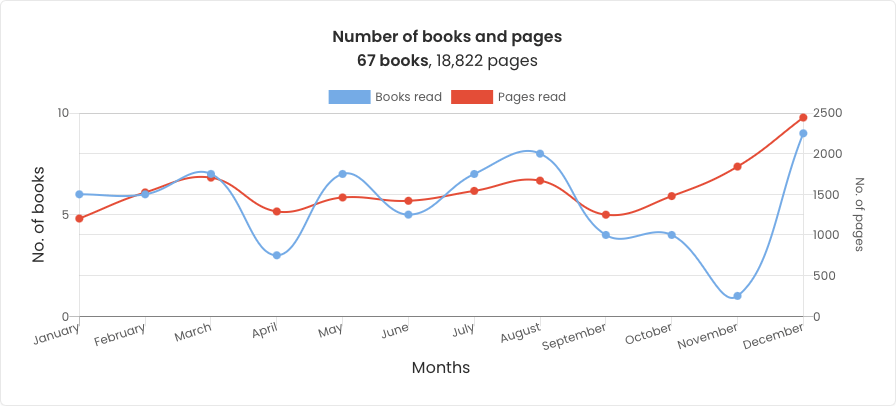
On to 2026!


